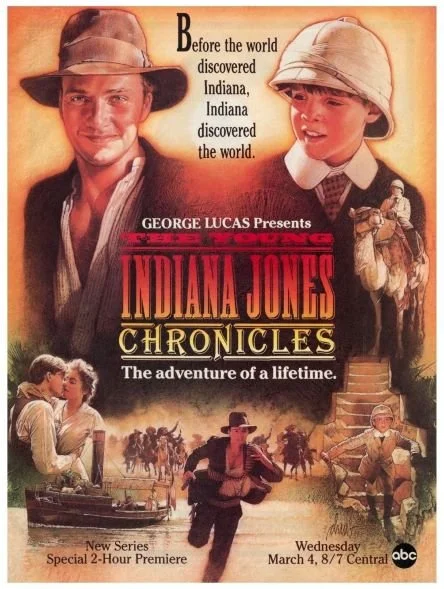Joel McNeely And The Music Of 'Shadows Of The Empire'
The mid-1990s saw the return of 3 3/4" Star Wars action figures. New comic books and novels were hitting book stores worldwide. The Star Wars Special Editions once again reigned supreme at movie theaters across the country. Star Wars was back in a huge way, and it has not slowed down twenty-five years later. Among the onslaught of Star Wars merchandise was something Lucasfilm had never attempted before or since: the multimedia project known as Shadows of the Empire, the movie without a movie.
Most Star Wars fans will remember the novel by Steve Perry and the N64 videogame of the same name. Some may remember the action figures, the comic books, or the trading cards, but how many fans remember that there was a soundtrack to it all? A soundtrack to a novel. Such a crazy idea! But it worked, and it was brilliant! The Shadows of the Empire soundtrack is insanely underrated, as is its composer Joel McNeely. But how does one write music to a novel? Without the visuals, how does a composer know where to place the climatic brass moments as in the moment when the Rebels destroy Jabba's sail barge? Apparently, writing music based on literature is not something new.
RELATED: Meet The Composer of 'The Lord of The Rings' Soundtrack
The idea for a score based on literature was inspired by classical program music by composers like Beethoven and Richard Strauss. In the early 90s, Varèse Sarabande Records was publishing music for the Young Indiana Jones Chronicles. Around the same time, Lucy Austry Wilson of Lucasfilm Publishing suggested creating a score for the Thrawn Trilogy. While that never came to be, the idea returned when the Shadows of the Empire project began. Varèse Sarabande naturally chose Joel McNeely to score the music as McNeely had experience working with Lucasfilm, scoring music for the Young Indy Chronicles. McNeely was shown some Ralph McQuarrie concept art, and off he went.
McNeely chose to use existing Star Wars music as thematic pillars rather than give a "poor man's imitation” of John Williams. He wanted to create an eclectic array of music that would tell the character's story and events through music, like a film score. However, since there was no film, McNeely was not relying on a temp track, sound effects, or the film timings. Instead, he imagined different scenarios and reacted to them "without fear of fighting another element." Unrestricted by film timings, McNeely focused on specific elements as long as he liked, noting that "Every passage represents some person, place or event in this story."
The Shadows of the Empire soundtrack was released on April 23, 1996, on audio cassette and compact disc. In addition to the score, the CD release contained exclusive CD-ROM features. The album featured the same artwork as the novel by poster art guru Drew Struzan. It also included liner notes with brief plot summaries and commentary for each track, the text of Dha Werda Verda (the Mandalorian war chant), and notes from Lucasfilm sound designer Ben Burtt.
McNeely is arguably one of the most versatile composers in television and film. He also conducted re-recorded film scores by greats like John Barry, Franz Waxman, including those Bernard Herrmann wrote for Vertigo, Psycho, and Citizen Kane. He also composed the score for The Avengers (no, not those Avengers) and the theme and music for Dark Angel. Additionally, McNeely wrote the score for Terminal Velocity, Iron Will, the theatrical trailer to Balto, the VHS trailer to Mulan, Flipper, and several other movies from the late 1990s. He also scored several Disney animated films such as Mulan II, Return to Never Land, and Tinker Bell.
More recently, McNeely scored episodes of American Dad! along with the sci-fi parody, The Orville. With such an impressive resume and his history of working with Lucasfilm and Disney, it is surprising McNeely has not returned to score a Star Wars project. Shadows of the Empire is unique in that it is Star Wars music even though it is not usually lumped in with the rest of the classics. It is perfect for when Star Wars music hits the mood, but something different is called for. It definitely lies in the shadows.
READ NEXT: Things You Didn't Know About Darth Vader's Inquisitors
Source(s): Wookieepedia



